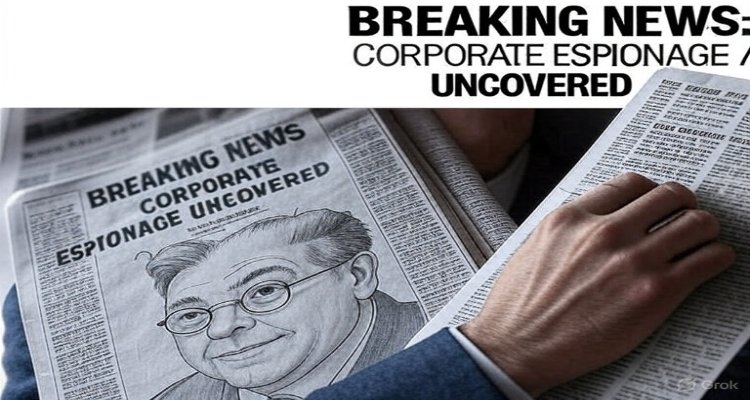Albania Appoints Diella: World’s First AI “Minister” to Oversee Public Procurement and Eliminate Corruption

Albania pioneers anti-corruption by naming Diella, an AI-powered virtual “minister,” to oversee public tenders, aiming for complete transparency in government procurement.
Albania has made headlines worldwide by appointing Diella, an AI-powered virtual “minister,” to lead the fight against corruption in public procurement and tenders—an unprecedented move intended to bring radical transparency and efficiency to government operations. Below is a comprehensive, original article covering the background, implications, and public sentiment surrounding this bold experiment.ndtv+3
Introduction: A Digital Sun Rises Over Albanian Governance
In a world first, Albania has appointed an artificial intelligence system named Diella as its Minister for Public Procurement, hoping to end decades of corruption and inefficiency in government contracts. Diella—meaning “sun” in Albanian—embodies both the digital and symbolic dawn of a new era, tasked with ensuring that every public tender and contract award is handled with absolute integrity.wikipedia+2
Context & Background
Albania, a Balkan nation of 2.8 million, has faced chronic challenges with corruption, particularly in the arena of public procurement, where scandals and allegations of favoritism have repeatedly tainted government credibility. This long-standing problem is seen as a major stumbling block in Albania’s quest to join the European Union—an ambition Prime Minister Edi Rama hopes to achieve by 2030.reuters+3
Public tenders, the process through which government contracts are awarded, have been hotspots for bribery, money laundering, and illicit political influence, undermining public trust and slowing economic and social reforms. Addressing this was a key condition set by EU negotiators for furthering Albania’s accession talks.globalgovernmentforum+2
Main Developments
Diella was initially launched in January as a digital assistant in the government’s e-Albania platform, offering help to citizens in accessing documents, answering questions through voice commands, and issuing digital records with electronic authentication. Within eight months, Diella had processed over 36,600 documents and delivered nearly 1,000 government services, demonstrating both technological capacity and public utility.economictimes+2
In September, Diella was promoted to Minister for Public Procurement, with full responsibility for evaluating and awarding all public tenders across the country. According to Prime Minister Rama, this move is destined to “make Albania a country where public tenders are 100 per cent free of corruption,” eliminating opportunities for bribery, threats, or political favor-trading. Diella’s role is powered by advanced AI algorithms trained by the National Agency for Information Society of Albania (AKSHI), in collaboration with Microsoft.ndtv+4
Visually, Diella appears as a digital woman wearing traditional Albanian costume—her likeness and voice are provided by local actress Anila Bisha—and she exists only as a virtual entity, with no physical presence in Albanian government offices.wikipedia+2
Expert Insight and Public Reaction
The appointment has ignited intense debate within and beyond Albania. Supporters herald Diella as a historic answer to endemic corruption, lauding her as an incorruptible decision-maker immune to bribery, threats, or political pressure. “This initiative is about embedding safeguards of fairness, consistency, and clarity into the very fabric of governance,” noted Dikshu C Kukreja, Albania’s Honorary Consul General, who praised the move as a visionary step toward trust and accountability.obnews
However, skepticism abounds. Legal experts have voiced concern that Diella’s non-human status could raise accountability issues. Opposition parties have denounced the appointment as “unconstitutional,” pointing to laws requiring ministers to be adult citizens. There is also unease about the opacity of Diella’s algorithms and the risk of undue influence if oversight mechanisms are not robustly defined.timesofindia.indiatimes+2
Digital rights advocates caution that transparency in how Diella operates—the data she uses, the audits and appeals available—remains an open question. Some warn that if poorly managed, the experiment could swap old forms of corruption for new technological blind spots.timesofindia.indiatimes+1
Impact & Implications
If successful, Diella could fundamentally transform how government contracts are awarded in Albania, setting a precedent for digital transparency worldwide. Every contract, project, and public fund routed through procurement may soon be processed by a system immune to bias, exhaustion, or favoritism.jagranjosh+2
-
For citizens and businesses, this means faster, more reliable access to government opportunities unclouded by backroom deals.hindustantimes+1
-
For other nations, Albania’s model may serve as both inspiration and a warning—indicating the opportunities and limits of delegating public authority to AI, especially where trust is fragile.
-
For EU accession, real progress in corruption control could unblock talks and speed Albania’s path to membership, provided the AI system delivers both real accountability and legal legitimacy.globalgovernmentforum+2
Yet ultimately, the success of this initiative will depend on ongoing transparency, independent oversight, and public confidence in Diella’s decision-making logic—a challenge as much social as technological.jagranjosh+2
Conclusion
Albania’s gamble on Diella, the world’s first AI cabinet “minister,” is as much a leap of faith as a technological breakthrough, asserting that the future of clean governance may be built not just on human willpower but on incorruptible code. As the Balkans watch closely—and the world considers the promise and perils—one thing is certain: Diella’s “sun” will either illuminate a path to trust or expose new shadows in the complex dance between government, technology, and society.ndtv+2
Disclaimer This article is for informational purposes only. It is based on publicly available sources at the time of writing and does not constitute legal or investment advice. All views expressed reflect reportage and analysis, not official endorsement of actions or claims.










